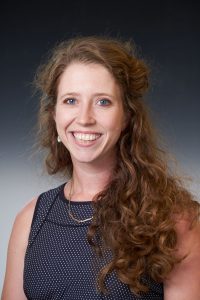What does a mathematically proficient student sound like in a discussion? Today, many math teachers instruct students to use specific sentence and question stems popularized by the Institute for Learning as tools for structuring “accountable talk,” or respectful and reasoned classroom discussion in which participants are accountable for helping the whole group understand a lesson.

However, a group of math educators affiliated with the Syracuse University School of Education (SOE) and the Syracuse City School District (SCSD) ask whether it is time to re-think this method, which starts with teacher direction instead of an invitation for students and families to contribute norms from their diverse backgrounds.
Charlotte Sharpe, an SOE assistant professor, has received a grant from the National Council of Teachers of Mathematics to investigate new approaches to accountable talk in math learning. The research will determine whether students will participate more in math discussions if their teacher co-constructs accountable talk norms that are inclusive of students’ language of comfort and their cultural ways of respectfully discussing ideas.
Other questions guiding the project probe whether “culturally sustaining accountable talk” will help students develop a positive mathematics identity and whether these effects differ according to students’ prior math achievement, race, gender, or socio-economic status.
Principal Investigator Sharpe is joined in this research project by Stephen Caviness, a Ph.D. candidate in SOE’s Teaching and Curriculum program; Tracy Hogarth-Mosier, District Instructional Math Coach, SCSD; and Joseph “Brent” Sharpe, a fifth grade teacher at J.T. Roberts preK-8 School, SCSD.
“As a group of math educators, we have been reflecting on whether our typical approach to introducing and teaching accountable talk stems positions students as ‘empty vessels’ who need to be taught how to respectfully discuss, critique, and build on ideas,” explain Sharpe and her co-investigators. “What would it look like to instead presume student’s competence?
The project will investigate what happens when children and families are asked to collaborate with math educators to develop a toolkit of question and sentence stems for engaging in respectful and caring accountable talk. “Would math discussions sound the same? Would we see differences in students’ verbal participation, math identity, and feelings of belonging in math class?”
To answer these questions, the research team will analyze student surveys, classroom videos, teacher reflections, and audio recordings of students interviewing a family or community member about respectful talk. These analyses will then help the team to create a culturally affirming set of accountable talk stems for math learning, as well as a practical teacher’s guide for how to go about this work.
